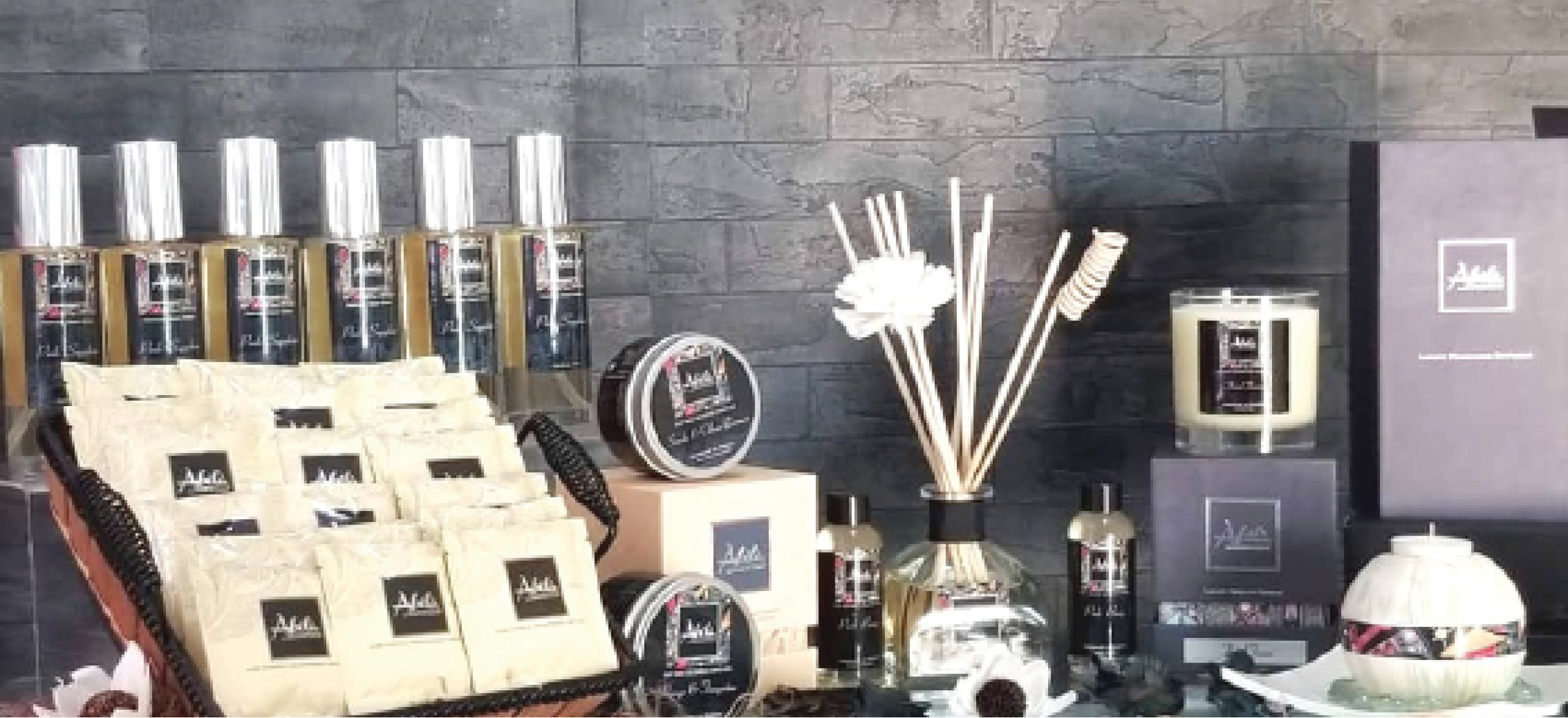‘How, why I became a perfume composer’
Deola Paul-Inyang is a trained Nigerian perfume composer and scent architect. She is the Chief Executive Officer (CEO) of Scents of Africa and the Director of Àbélà Fragrance Academy, pioneering the conscious and systemic skill creation of artisan perfumers in Nigeria. Here, she spoke about becoming a perfume composer, the technicalities of scent creation, and […]

Deola Paul-Inyang is a trained Nigerian perfume composer and scent architect. She is the Chief Executive Officer (CEO) of Scents of Africa and the Director of Àbélà Fragrance Academy, pioneering the conscious and systemic skill creation of artisan perfumers in Nigeria. Here, she spoke about becoming a perfume composer, the technicalities of scent creation, and more.
Daily Trust: You’re a perfume composer. How did you become one?
Deola Paul-Inyang: I have always been intrigued by scents through early exposure to my mother’s designer perfume collections. My intrigue to the construct of perfumes on the other hand stems from my curious mind, an innate sense of creativity to deconstruct and reconstruct. The love for the art stirred the need to communicate elements and emotions that I otherwise would have no verbal reference for. Perfume composing became my form of expression where words failed me.
DT: How do you design a scent?
Paul-Inyang: For me, scent architecture bears semblance to building the structure of a musical piece, both sharing the need to communicate in non-verbal terms. The designing process starts with intent to communicate a unique story inspired by the life around me.
DT: How did you come about the brand ‘Àbélà’?
Paul-Inyang: The idea of Àbélà was created from my creative passion and nose for scents as well as a throw-back memory of happy moments in my childhood where my grandmother would light up taper candles on the eve of New Year, indicative of ushering in a glorious new year. My grandmother would say, ‘E lo tan Àbélà’, which is interpreted from the Yoruba language as ‘Go, light up the candles’. Though not scented, the lighting of these candles inspired a profound thought that birthed my brand.
DT: What kind of perfume do you create?
Paul-Inyang: My creative style tilts more to the delicate impact of aromatics to the mind and emotions. I create scents that ease the mind into a harmonious state of balance, for use in homes, baths and body scent application, as well as commercial scent applications. I am strict about the source and quality of materials. For instance, Africa has a huge supply of rose essence, vanilla, myrrh, frankincense, etc. The choice of materials used in my composition is dependent on the inspiration.
DT: What is the importance of perfumes?
Paul-Inyang: Scents in general have a psychological impact on our mind, mood and emotions. They can positively alter our state of mental well-being. Natural aromatics have a therapeutic benefit to them as observed in Aromatherapy. Many natural aromatics have properties from which are the derivatives of most early medicines. For instance, tea tree oil and eucalyptus oils are most notable for their antiseptic and antibacterial properties. Natural aromatics are used not only by the perfume industry, but also the flavour companies and pharmaceuticals.

DT: Can perfumes be worn everywhere or are there special places or occasions where they should be used?
Paul-Inyang: I will respond in the epic words of Coco Chanel: ‘No elegance is possible without perfume’.
DT: How do you admit students?
Paul-Inyang: ÀbélàTM Fragrance Academy currently offers short courses on the technology and art of perfumery and candle making. Our courses are designed to help participants understand not just the ‘how’, but also the ‘why’ of the art of scents. They are designed to help participants understand the nuances and psychology of scents.
DT: What is your assessment of the perfumemarket in Nigeria?
Paul-Inyang: The trade aspect to the perfume market has experienced astronomical growth in recent years. We do believe that this growth would transcend into creating stronger impact for growth in scent architecture, design and manufacturing. It’s been a daunting yet exhilarating experience.
